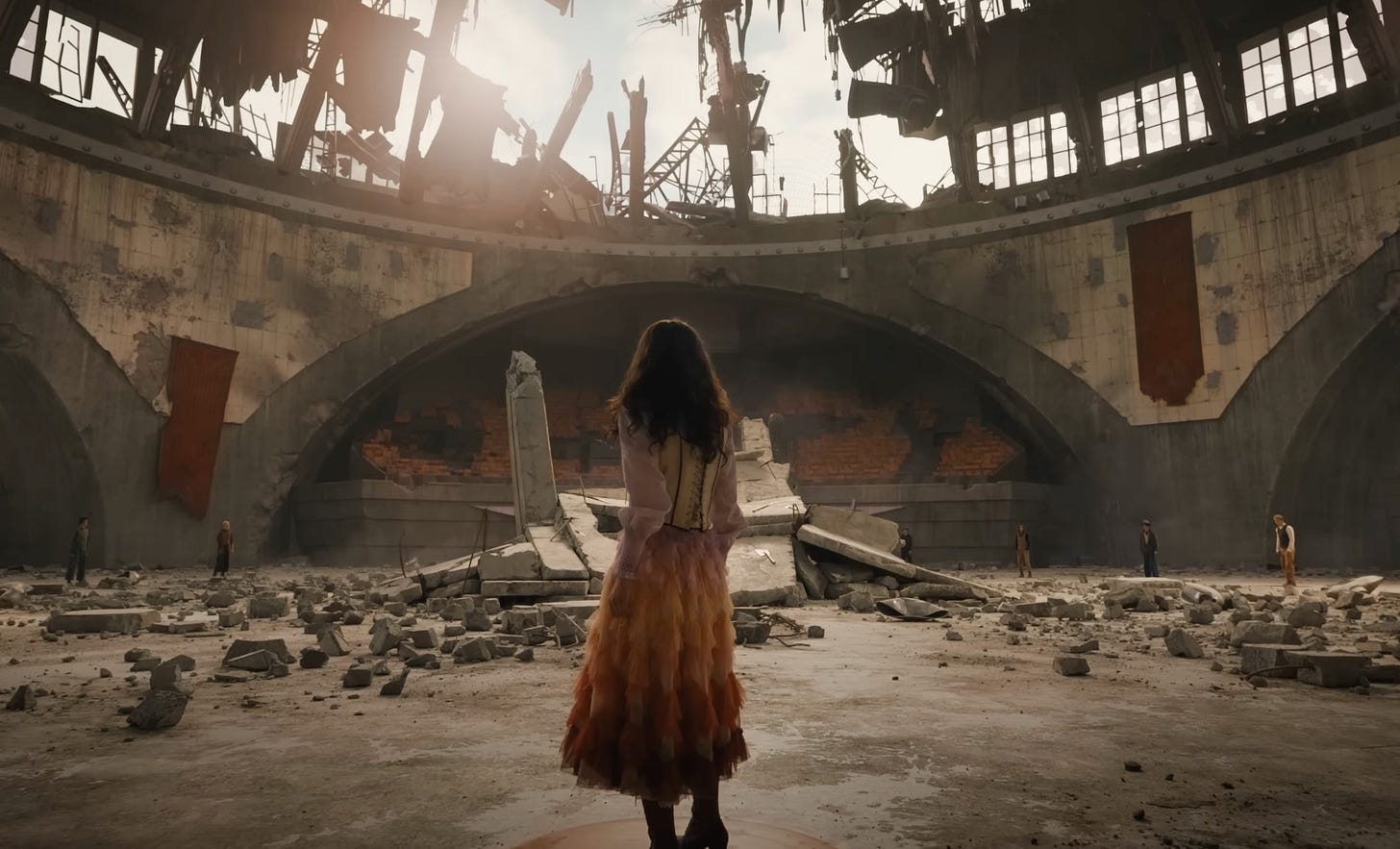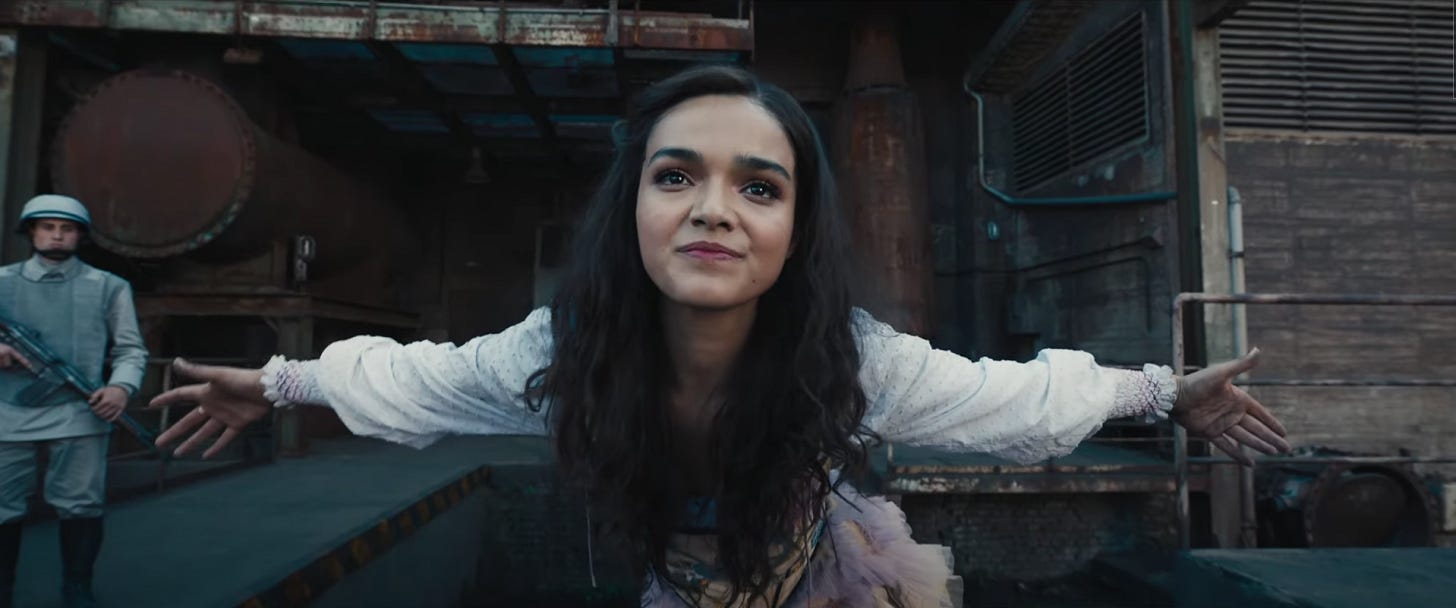The Ballad of Songbirds & Snakes (2023)
A Worthy Return to Panem for the Tenth Annual Hunger Games.

When Suzanne Collins published The Ballad of Songbirds & Snakes, I didn’t bother picking up the book. It was a prequel to the Hunger Games Trilogy, a series whose popularity crested while I was a young teen. I was a dedicated fan until Mockingjay, where I lost interest in the bifurcated cinematic conclusion.
My hunger had been satiated. The story of a young Cornelius Snow, the man who would ascend to Panem’s presidency and eventually face Katniss Everdeen… well, I didn’t care. The prequel offered answers to questions I never had, so I skipped it.
Watching the cinematic adaptation of The Ballad of Songbirds & Snakes, which landed in theaters this Friday, I was untroubled by literary comparisons. Furthermore, the entire Hunger Games franchise has, with time and brain-cell-killing substance use, become hazy in my memory. As a result, I was able to return to Panem with fresh eyes.
I was pleasantly surprised by what I found. Sixty-four years before Katniss would volunteer as tribute, Cornelius Snow aspires to greatness as a “game maker.” The violent rebellion that inspired the Hunger Games, an annual punishment wherein two teens from twelve districts fight to the death on television, is a fresh wound in the national psyche.
The Hunger Games have not become institutionalized. As the tenth Hunger Games approaches, the people of Panem aren’t tuning in. They’re bored, and there can be no game without an audience. In an attempt to salvage the gladiatorial ritual, aspiring game makers are paired with tributes. Their task: get close to their tribute and coach them. Their goal: the cultivation of violent spectacle to create a good show and renew interest among audiences.

While The Hunger Games has always contained a dystopian critique of reality television and gamified violence, being situated alongside game-makers makes for a more disturbing experience. Rather than identifying with Katniss, an unwilling competitor, we spend time behind the scenes with Snow essentially functioning as a producer of The Tenth Hunger Games. Every installment features children murdering each other, but this film felt more viscerally upsetting than all the others. By positioning Snow as our protagonist, audiences are more directly implicated in the brutal violence that unfolds.

The comparative simplicity of The Tenth Hunger Games lays bare the barbarism central to the concept. Tributes are not stung to death by genetically engineered wasps, poisonous fog, or other monstrosities unleashed by the game-makers. It’s a much simpler affair. No sprawling forests or beaches. Instead, twenty-four tributes are dropped into a gladiatorial arena. They slaughter each other with blades, pitchforks, and blunt objects. Without advanced tools to control tribute behavior, game-maker intervention is crude and more directly manipulative of the individual tributes.
Despite strong violence, there is minimal gore. The film is edited to maintain a PG-13 rating and, as a result, the worst violence occurs off-screen. While your eyes may be spared, your ears are not. The sounds of blades puncturing flesh, the bloodcurdling screams of dying children… there’s an ugliness to the film. A grim view of human nature makes the action less “enjoyable” but far more impactful.
Snow is assigned the female tribute from District 12, Lucy Gray Baird. She is the film’s songbird. Her voice is her greatest asset. Her talents are, themselves, a spectacle to behold. As such, she offers a half-dozen musical interludes throughout the film.

Lucy Gray’s relationship with Snow is really the film’s focus. The events of The Tenth Hunger Games conclude far before the film ends, leaving about an hour of post-game narrative development. While I think the film’s pacing is negatively impacted by the film’s narrative structure, the third act is a meaningful coda that presents difficult questions of honor, service, and devotion to a corrupt, violent state. Questions of “right” and “wrong” are confounded at the intersection of self-interest, love, trust, and nationalism.
It’s by no means a perfect movie. I suspect some will find the final third boring. Others may balk at the prospect of sympathizing with Snow, who goes on to become a murderous dictator. I was content to languish in the film’s moral ambiguities, savoring the discomfort and horror.
Ultimately, The Ballad of Songbirds & Snakes offers enough substance to justify a return to Panem. This is not a cynical cash grab a la Fantastic Beasts, it’s a film strong enough to stand alone.
Subscribe to Acquired Tastes for a newsletter delivered every Sunday!
Have you seen The Ballad of Songbirds & Snakes? Let me know your thoughts below!
Until next week, may the odds be ever in your favor, film freak.




